Dermatologist explains how your bedding is affecting your skin – and what fabric you should be using instead
From cool cotton to stylish silk, this is the type of fabric that is best for your skin concern

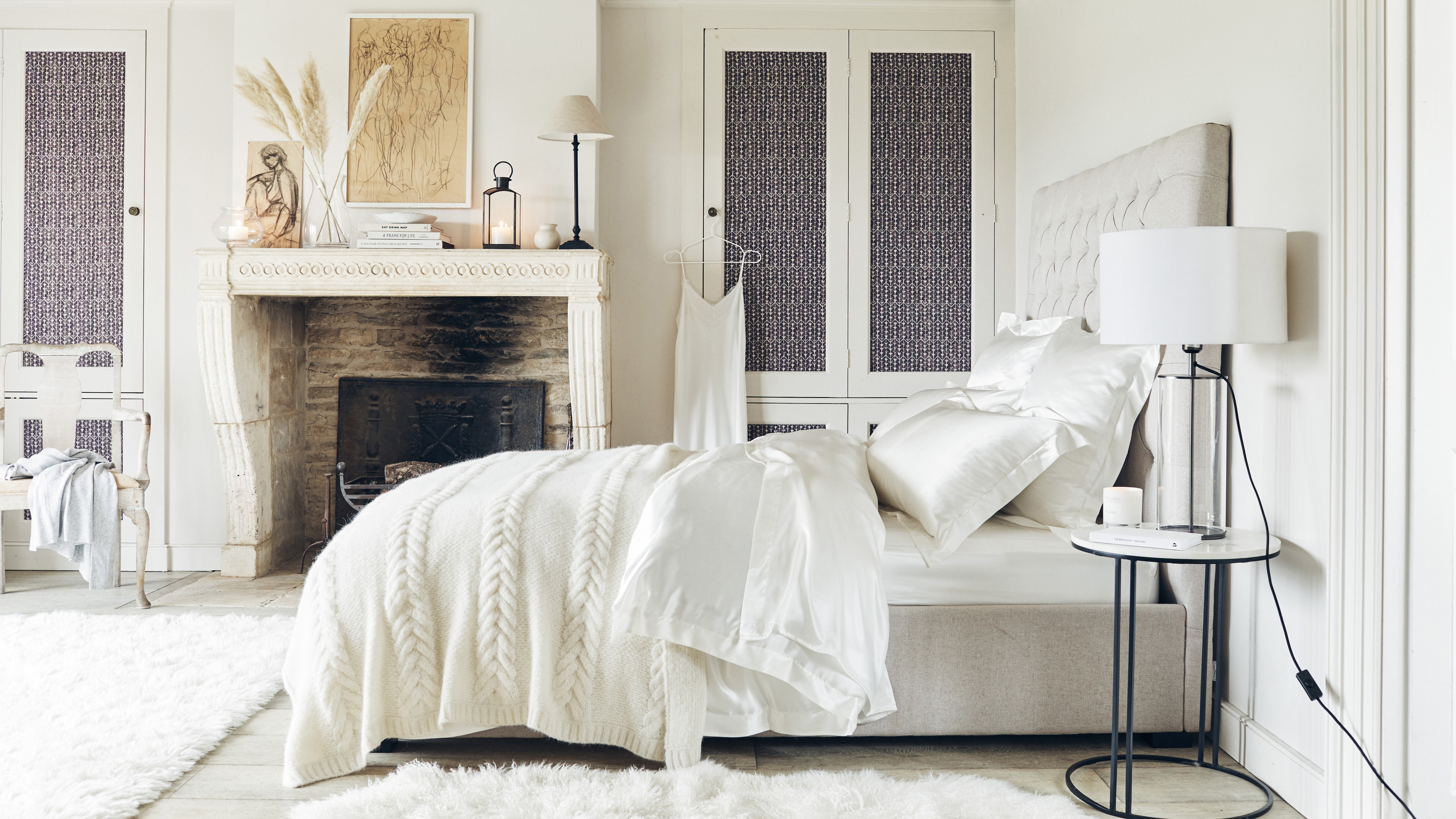
The Livingetc newsletters are your inside source for what’s shaping interiors now - and what’s next. Discover trend forecasts, smart style ideas, and curated shopping inspiration that brings design to life. Subscribe today and stay ahead of the curve.
You are now subscribed
Your newsletter sign-up was successful
There's a lot to consider when choosing the correct fabric for your bed. While the aesthetic is undeniably important, it is essential to consider the impact on your skin.
See: Best mattress 2021 – 10 options for a (very) comfortable night's sleep
We spend, on average, one-third of our lives in bed, and as dermatologists suggest, this time significantly affects the health of our hair and skin. So, next time you are choosing new bedding, consider your skin's personal needs alongside your home decor and choose a fabric that is both stylish and doctor-approved.
Plus, even if you don't have a specific skin concern, finding the most comfortable fabric is still important to a good night's sleep, as Joanna Ross, General Manager of Design at Sheridan, suggests:
'Quality materials, luxurious fabrics, and expert craftsmanship are the keys to creating the perfect night's sleep. It may feel like your options are endless; however, once you've defined what comfort means to you, the rest is easy.' So, what material should you choose?
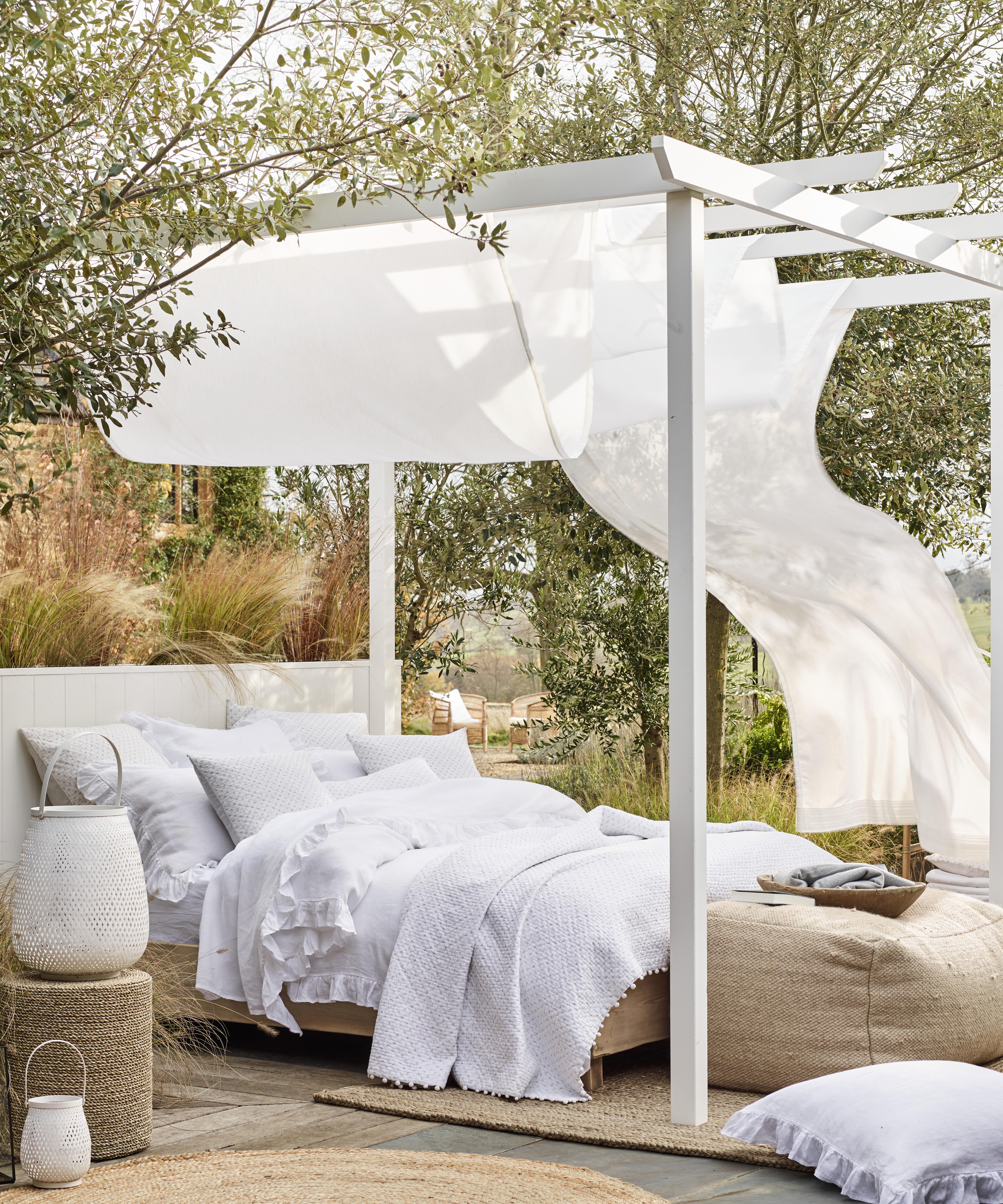
Kara Hemp Bed Linen Collection, from approximately $50/ £40, The White Company
Which fabric is best for acne or facial creasing?
In a clinical trial for MemoryFoamMattresses.co.uk, Consultant Dermatologist and Co-Founder of skindoc, Dr. Sreedhar Krishna explains that silk bedding will 'significantly decrease' eczema, and promote 'good skin appearance [and] comfort.'
'Skin and hair don't like friction – thus, silk is strongly preferred. This will enable you to glide over your bedding as you move during sleep without being too abrasive. This is even more important if you are a fidgety sleeper,' Dr. Krishna shares.
The Livingetc newsletters are your inside source for what’s shaping interiors now - and what’s next. Discover trend forecasts, smart style ideas, and curated shopping inspiration that brings design to life. Subscribe today and stay ahead of the curve.
'People who invest will quickly notice that they no longer wake up with stiff creases on their skin,' he adds.
See: Master Bedroom Ideas: 31 stunning bedroom schemes
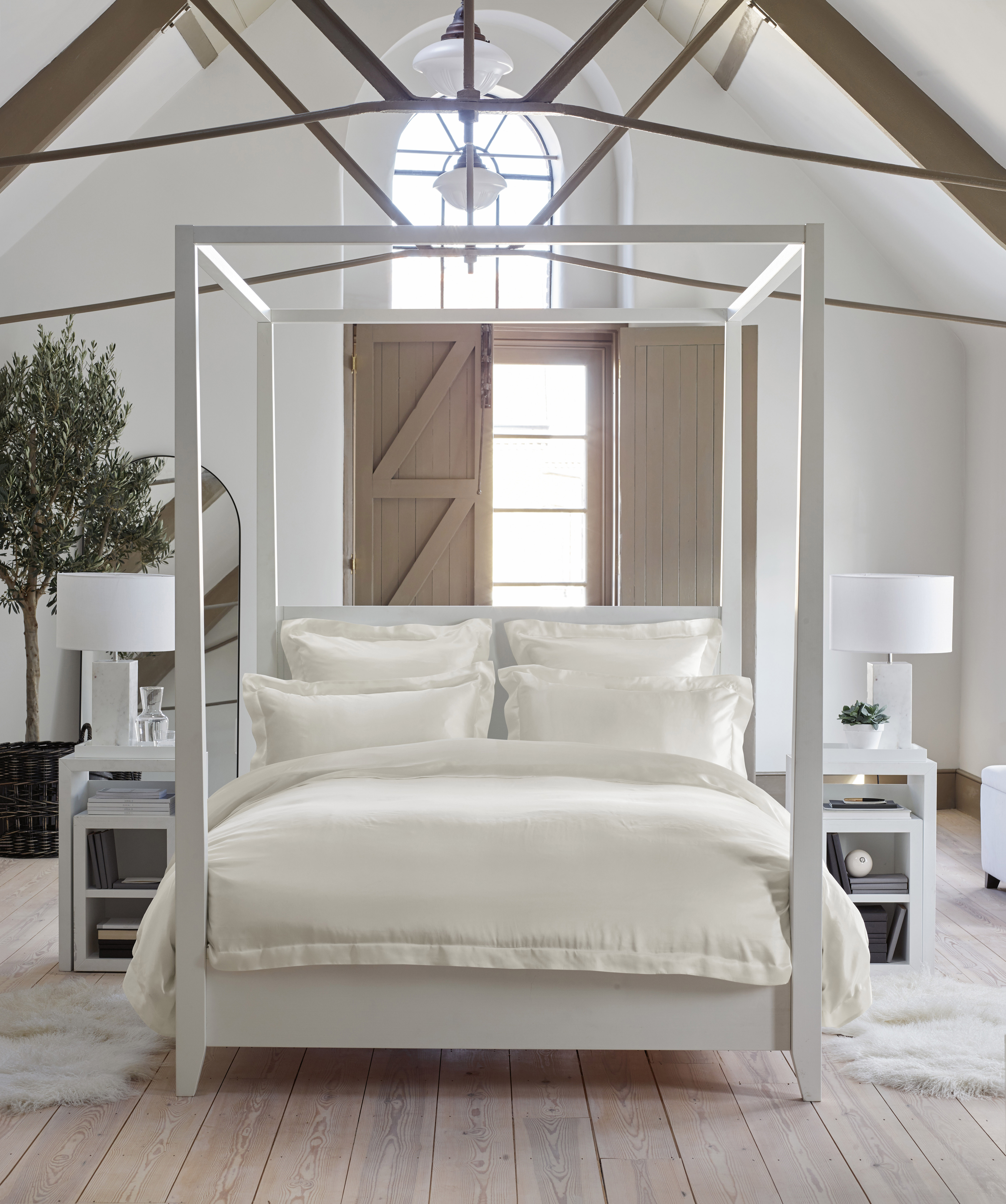
Audley Pure Silk Bed Linen Collection, from approximately $69 £50, The White Company
What about sensitive skin or eczema?
When it comes to sensitivity, nothing compares to the fresh feeling of cotton, which, as Dr. Krishna reminds us, is a 'highly absorbent substance,' which is cool and comfortable to sleep on.' Therefore, you are less likely to sweat, so your skin will feel less irritated overnight.
'Cotton is also another bedding option if you have eczema-prone skin, with The National Eczema Society stating that cotton 'allows the skin to breathe,' he says.
'It's also naturally hypoallergenic, reducing your itching and fighting off dust mites that feed on dead skin cells,' the dermatologist says.
The importance of staying cool is further emphasized by the British Association of Dermatologists, who remind us to 'keep cool' as 'overheating can make eczema itch more.'
'Wear comfortable clothes made of materials such as cotton and silk, and avoid wearing wool next to your skin,' they add.
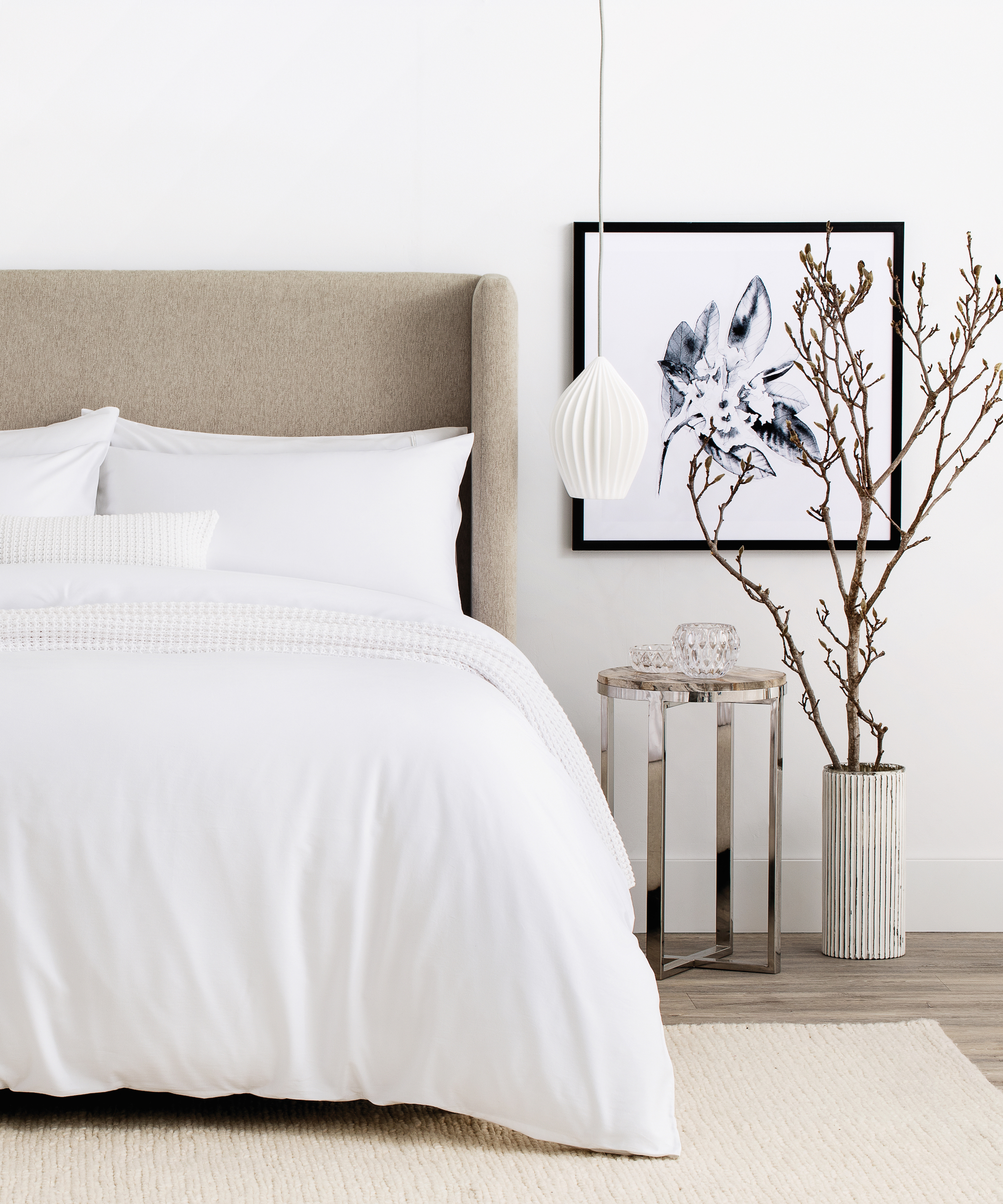
TENCEL™ Lyocell Fibre And Cotton Quilt Cover, from approximately $123/ £90, Sheridan
What's the solution for clogged pores?
Linen, like cotton, is a hypoallergenic material, which is also highly absorbent for summer nights when you might feel hot. This 'temperature-regulating material, therefore, reduces sweat and thus reduces clogged pores.'
'Linen can be durable, anti-bacterial, and easily washable. The absorbent nature of the material can help prevent facial sweating, which can protect your skin against breakouts,' shares Dr. Krishna.
He continues: 'What's more, linen has tiny breaks in the material, which provide a gentle massaging effect. This stimulates blood flow, increasing the oxygen and nutrients delivered to your skin cells, which can result in a healthier-looking complexion.'
See: Small bedroom ideas: 15 design ideas that max out on style
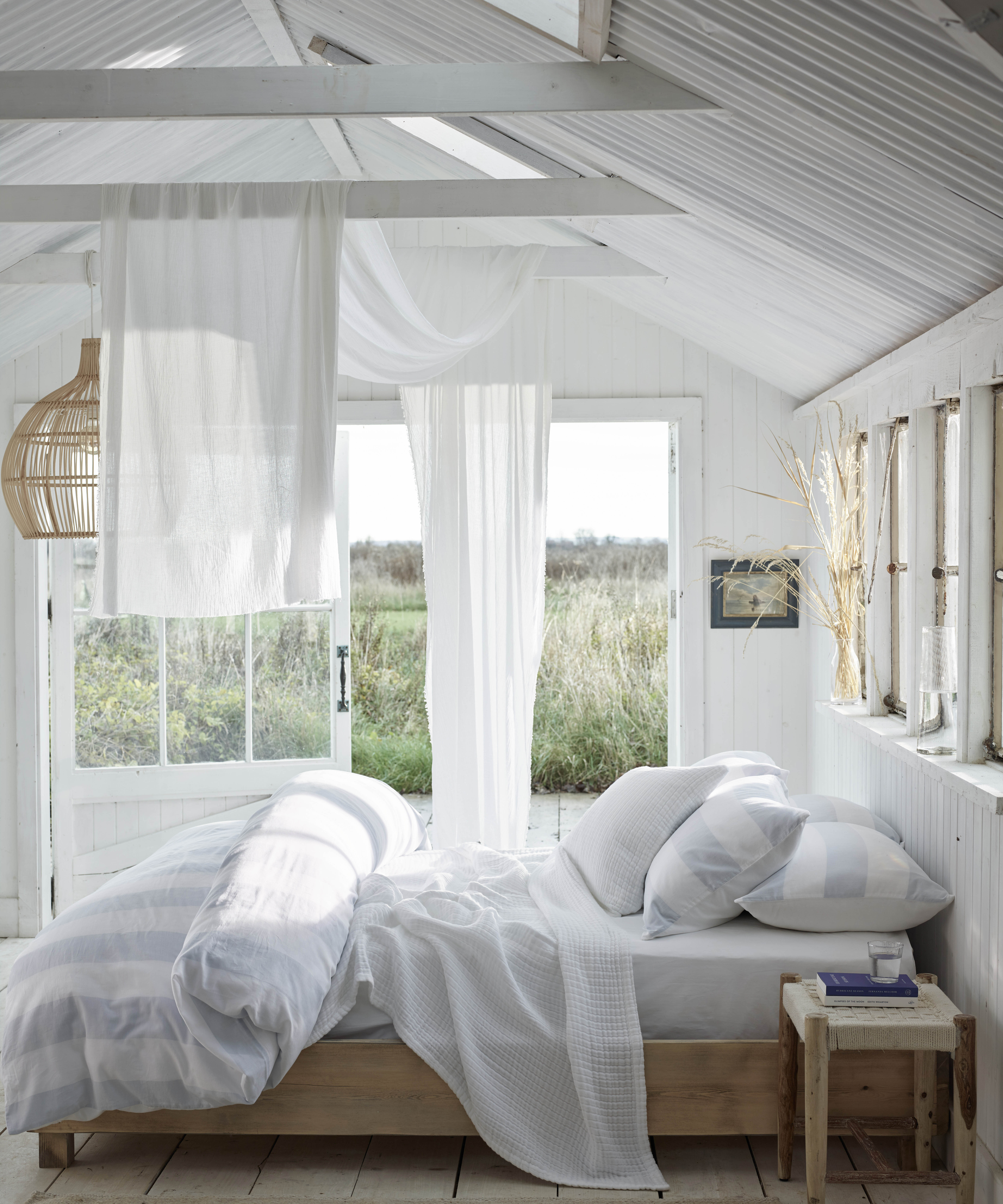
Maris Stripe Bed Linen Collection, from approximately $25/ £18, The White Company
Which bedding is best for complimenting your skincare regime?
If a better hair and skin regime is a priority, Dr. Krishna suggests shopping for satin bedding, that 'which is usually non-absorbent and won't soak up moisture from your skincare products.'
'Some forms of satin can be softer than silk, which can be more comfortable. It's much easier to clean than silk and can be readily washed with other garments. Satin is also much more affordable than silk but retains the same ability for hair and skin to glide over,' he explains.
'The smoothness of satin is also less likely to tangle and knot your hair, resulting in fewer breakages, which can give you shinier, glossier locks,' Dr. Krishna adds.
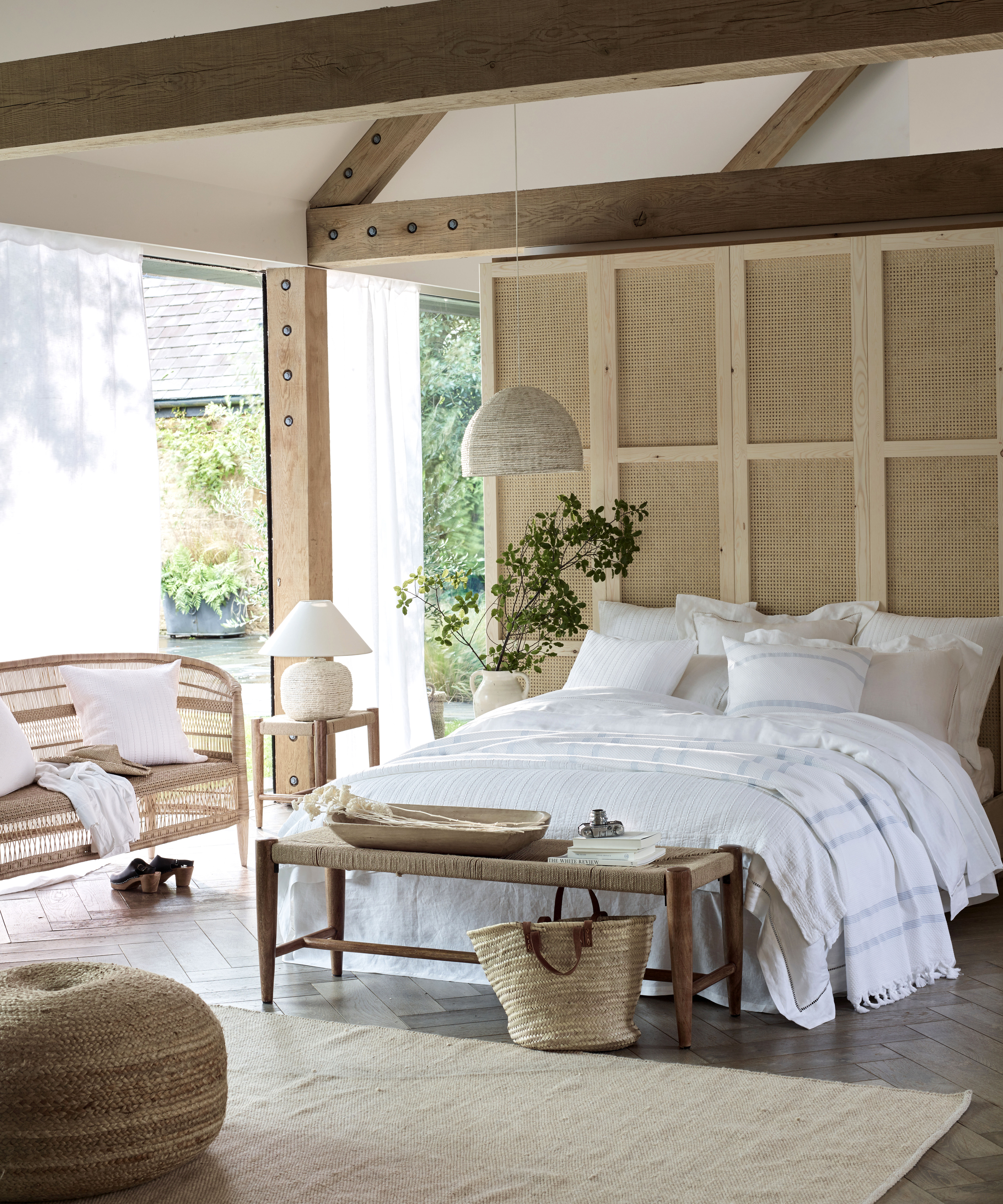
Which fabric will prevent wrinkles?
The secret to minimizing wrinkles is found in a copper-based pillowcase, as Dr. Krishna explains: 'Copper is naturally antimicrobial, so protects against breakouts. It is also used by the body to help synthesize new collagen. New collagen can help reduce the appearance of fine lines and wrinkles on your skin.'
Furthermore, another study suggested that using a copper oxide pillowcase can decrease wrinkle depth and, in turn, improve your skin's overall appearance.
Now we know our bedding will improve our skin, we have all the excuses we need to hit snooze for just a little bit longer. It's for the good of our skin, after all.

Megan is the Head of Celebrity Style News at Homes & Gardens. She first joined Future Plc as a News Writer across their interiors titles, including Livingetc and Real Homes, before becoming H&G's News Editor in April 2022. She now leads the Celebrity/ News team.
Before joining Future, Megan worked as a News Explainer at The Telegraph, following her MA in International Journalism at the University of Leeds. During her BA in English Literature and Creative Writing, she gained writing experience in the US whilst studying in New York. Megan also focused on travel writing during her time living in Paris, where she produced content for a French travel site.
Megan currently lives in London, where she relocated from her hometown in Yorkshire. In her home, she experiments with interior design trends and draws inspiration from the home decor ideas she observes in her everyday work life. Her favorite pieces include her antique typewriter and her expansive collection of houseplants. When she isn’t writing, she is browsing London’s coffee shops and bookstores to add to her ever-growing library, taking over the open shelving in her apartment.